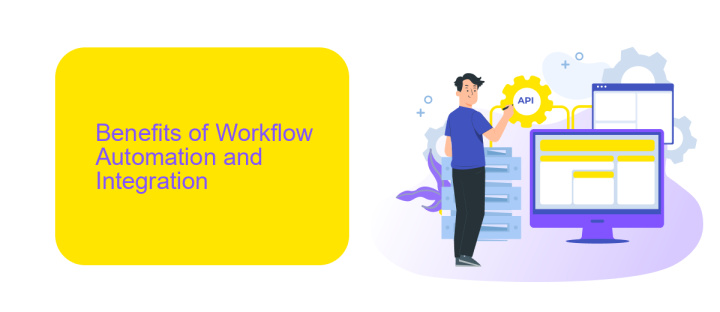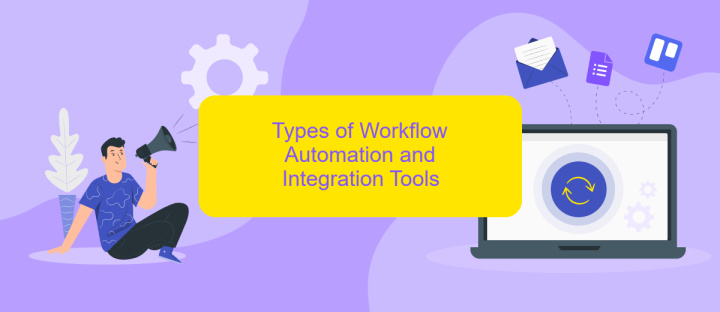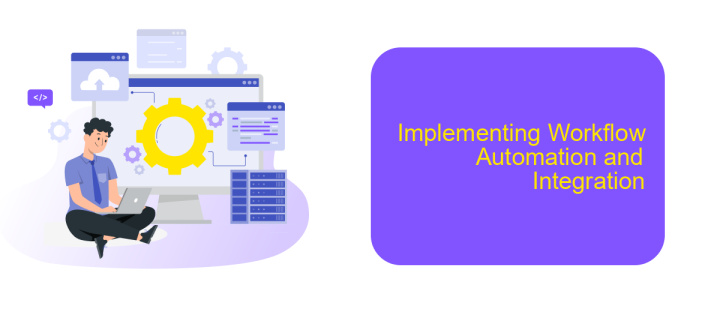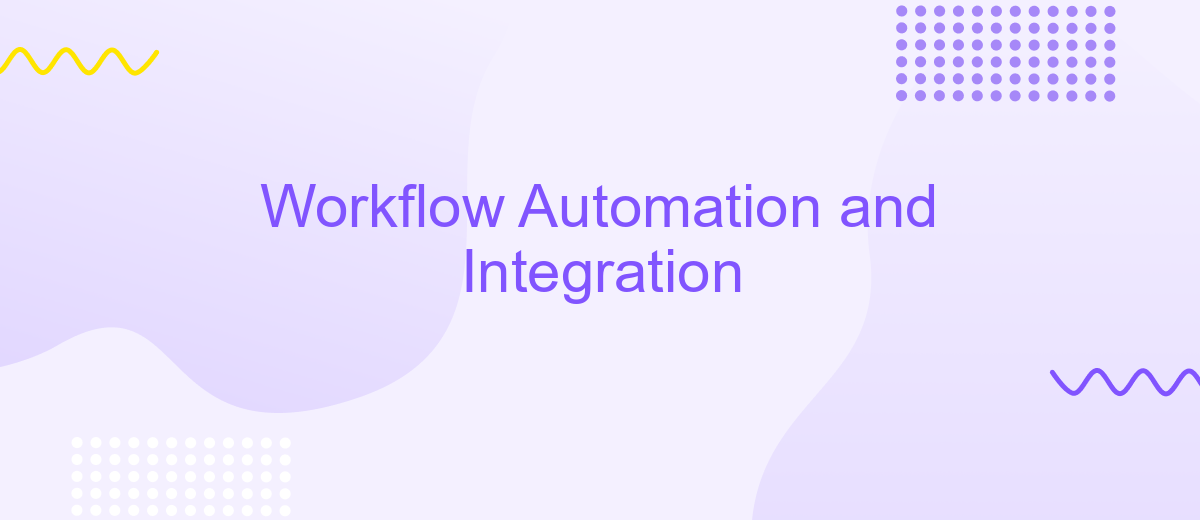Workflow Automation and Integration
In today's fast-paced business environment, workflow automation and integration have become essential for enhancing efficiency and productivity. By streamlining processes and ensuring seamless data flow between systems, organizations can reduce manual tasks, minimize errors, and improve overall performance. This article explores the key benefits, tools, and strategies for implementing effective workflow automation and integration in your enterprise.
Introduction
Workflow automation and integration are crucial for optimizing business processes, reducing manual tasks, and enhancing productivity. By leveraging advanced tools and technologies, organizations can streamline their operations and ensure seamless data flow across various platforms.
- Improved efficiency through automated workflows
- Seamless data integration between different systems
- Reduction in manual errors and operational costs
- Enhanced collaboration and communication
One of the key players in this domain is ApiX-Drive, a service that enables businesses to set up integrations effortlessly. ApiX-Drive allows users to connect various applications without the need for coding, ensuring that data moves smoothly between systems. This makes it an invaluable tool for companies looking to enhance their workflow automation and integration capabilities.
Benefits of Workflow Automation and Integration

Workflow automation and integration significantly enhance operational efficiency by streamlining repetitive tasks and ensuring seamless data flow between different systems. This reduces manual errors, saves time, and allows employees to focus on more strategic activities. By automating workflows, businesses can achieve consistent results and improve overall productivity, leading to better customer satisfaction and increased profitability.
Moreover, integrating various software applications through platforms like ApiX-Drive simplifies the process of connecting disparate systems, enabling real-time data synchronization and improved communication across departments. This not only accelerates decision-making but also provides a unified view of business operations. ApiX-Drive, for instance, offers a user-friendly interface and robust features that facilitate the setup of integrations without the need for extensive technical knowledge, making it an invaluable tool for businesses looking to optimize their workflows.
Types of Workflow Automation and Integration Tools

Workflow automation and integration tools are essential for streamlining business processes and enhancing productivity. These tools help in automating repetitive tasks and integrating various applications to work seamlessly together, thereby saving time and reducing errors.
- Task Automation Tools: These tools, such as Zapier and Integromat, automate routine tasks by connecting different applications and services. They enable users to create workflows that trigger actions based on specific events.
- Integration Platforms: Services like ApiX-Drive specialize in connecting various applications, allowing data to flow smoothly between them. ApiX-Drive, for instance, supports a wide range of integrations, making it easier to synchronize information across different platforms.
- Business Process Management (BPM) Tools: Tools like Nintex and Camunda focus on automating complex business processes. They provide visual interfaces for designing workflows and managing process execution.
By leveraging these types of workflow automation and integration tools, businesses can achieve greater efficiency and accuracy. Whether it's automating simple tasks or integrating complex systems, these tools play a crucial role in modernizing and optimizing operations.
Implementing Workflow Automation and Integration

Implementing workflow automation and integration involves several critical steps to ensure seamless and efficient operations. The first step is to map out your current workflow processes, identifying repetitive tasks that can be automated. This helps in understanding the areas where automation can bring the most value.
Next, choose the right tools and platforms that align with your business needs. Platforms like ApiX-Drive offer a wide range of integration options that can connect various applications and automate data transfer between them. This not only saves time but also reduces the risk of human error.
- Identify key processes for automation
- Select appropriate automation tools
- Configure integrations with platforms like ApiX-Drive
- Test and monitor the automated workflows
Finally, continuously monitor and optimize your automated workflows. Regularly review the performance and make adjustments as needed to ensure that the automation is delivering the desired results. By following these steps, businesses can achieve greater efficiency and productivity.
Best Practices for Workflow Automation and Integration
Implementing workflow automation and integration requires a strategic approach to ensure efficiency and scalability. Begin by mapping out your existing processes to identify repetitive tasks that can be automated. Utilize a reliable integration platform like ApiX-Drive to seamlessly connect different applications and automate data transfers. This not only reduces manual effort but also minimizes the risk of errors. Ensure that all stakeholders are on board and provide adequate training to maximize the benefits of automation tools.
Regularly review and update your automated workflows to adapt to changing business needs. Monitor the performance of your integrations and make adjustments as necessary. It's crucial to maintain documentation for each automated process to facilitate troubleshooting and future updates. Leverage the analytics and reporting features of platforms like ApiX-Drive to gain insights into the efficiency of your workflows. By following these best practices, you can achieve a more streamlined, efficient, and adaptable business operation.
FAQ
What is workflow automation and why is it important?
How can I get started with workflow automation?
What types of processes can be automated?
How do I integrate different software tools for automation?
What should I consider when choosing an automation platform?
Routine tasks take a lot of time from employees? Do they burn out, do not have enough working day for the main duties and important things? Do you understand that the only way out of this situation in modern realities is automation? Try Apix-Drive for free and make sure that the online connector in 5 minutes of setting up integration will remove a significant part of the routine from your life and free up time for you and your employees.

